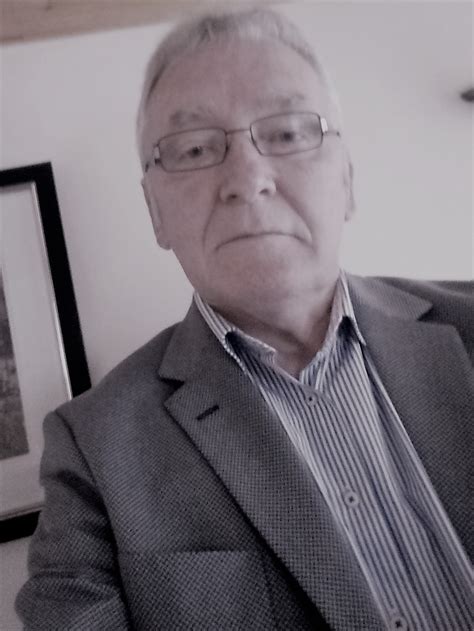A Quote by Hannah Fry
We should actively be thinking about what our inventions would look like if exploited by someone with a less of a moral compass and decide if the world would really be better off with them in it.
Related Quotes
You almost have to step outside yourself and look at you as if you were someone else you really care about and really want to protect. Would you let someone take advantage of that person? Would you let someone use that person you really care about? Or would you speak up for them? If it was someone else you care about, you'd say something. I know you would. Okay, now put yourself back in that body. That person is you. Stand up and tell 'em, "Enough!
If we could only make our hands move as actively as our tongues, what wonders we could accomplish! Almost everyone loves to hear his own voice. It is so easy, too! Yet if we could say less and do more for each other's good, not alone would every home be happier, but communities would be enriched thereby. Instead of criticism by speech, to show someone a better way to do a thing would be of much greater value.
I’d do almost anything for you,” Simon said quietly. “I’d die for you. You know that. But would I kill someone else, someone innocent? What about a lot of innocent lives? What about the whole world? Is it really love to tell someone that if it came down to picking between them and every other life on the planet, you’d pick them? Is that—I don’t know, is that a moral sort of love at all?
The foundation of leadership is your own moral compass. I think the best quality leaders really know where their moral compass is. They get it out when they are making decisions. It's their guide. But not only do you have to have a moral compass and take it out of your pocket, it has to have a true north.
Even fans of actively managed funds often concede that most other investors would be better off in index funds. But buoyed by abundant self-confidence, these folks aren't about to give up on actively managed funds themselves. A tad delusional? I think so. Picking the best-performing funds is 'like trying to predict the dice before you roll them down the craps table,' says an investment adviser in Boca Raton, FL. 'I can't do it. The public can't do it.'
If someone is interested in working with me, I would much rather them email me and we sit down or get on the phone, than them look at a client list and decide if I'm worth it or not. It should be based on work, and based on how we get along. As opposed to like, "Oh, he's worked with this, this, and this. Let's go. That's fine."








































